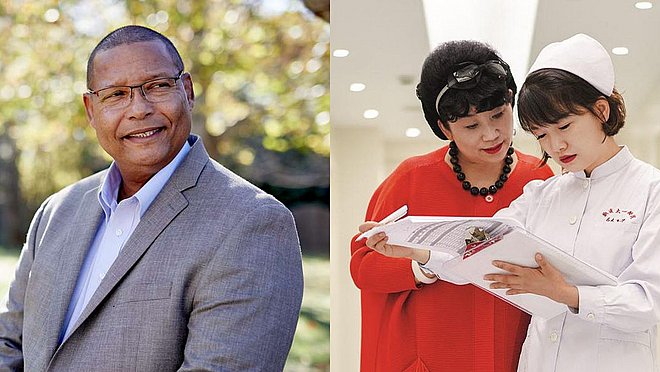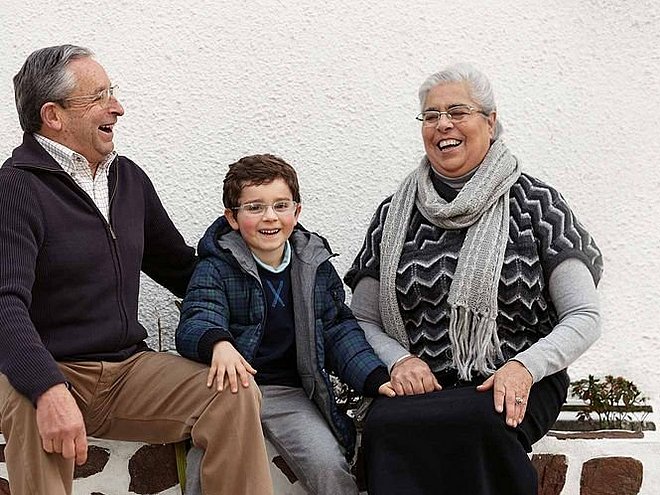Knowledge transfer chez Fresenius Medical Care

Dr Guy Laurent, nephrologist and founder of SMAD
French nephrologist Dr Guy Laurent is a pioneer of dialysis in France. He treated his first patients in Lyon back in the early 1960s. “But we didn’t have the right material,” the 82-year-old recalls today. A bottle factory in Lyon produced the first connecting pieces, but Laurent could not find a manufacturer for many other essential products.

"The first eleven members of staff were all patients."
So he took matters into his own hands. Several dialysis patients, who had moved to Lyon to receive the treatment they needed, were living in two apartments in the suburb of Sainte-Foy-lès-Lyon. Most had neither a job nor financial support. So they became the first employees of Société de Matériels Annexes pour la Dialyse, or SMAD, established in 1967. "The first eleven members of staff were all patients," Laurent confirms. One of the two apartments was also used as a workshop for manufacturing the first dialysis products, which were sold to hospitals in the region. When the space was being outgrown, Dr Laurent bought a farm in nearby Tessin, the city where he also founded his first private dialysis clinic in 1969. Despite his diverse activities, Dr Guy Laurent always remained a physician; he consistently delegated the running of SMAD, which has belonged to Fresenius Medical Care since 1987, to others.

Dr Charles Chazot, Medical Director of Fresenius Medical Care in France
"As well as being a pioneer of medicine, Dr Laurent is a true entrepreneur," acknowledges Dr Charles Chazot. Both physicians have known and respected each other for many years. Between 2007 and 2014, Chazot ran Fresenius Medical Care dialysis clinics in Lyon, including the facility founded by Dr Guy Laurent in 1969 under the name Centre de Rein Artificiel de Tassin. Later on, the dialysis clinic was renamed to NephroCare Tassin-Charcot.

"You probably won’t find anything like it..."
"Tassin-Charcot and SMAD cooperate on several research projects," explains the current Medical Director of Fresenius Medical Care in France. During his time as clinic manager, the 59-year-old nephrologist also encouraged reciprocal visits: dialysis patients and clinic employees went on plant tours, and in turn, SMAD staff visited the dialysis facility to see first-hand how the products they make benefit people. ""We continued this long-standing relationship, and it was important for everyone involved to gain these insights,” recounts Chazot. He says that the close link is very special. "You probably won’t find anything like it elsewhere."

Thierry Eyrard, Plant Manager at Fresenius Medical Care SMAD
"It’s not too common for a German company to invest in France to produce for the global market," says Thierry Eyrard. The senior SMAD manager is clearly proud of the recently concluded expansion of the plant in L’Arbresle. Production of Polysulfone fibres, a core component of a dialyser, is set to start here in spring 2017. "The expansion of the location was one of the most important projects in SMAD’s history," Eyrard points out. He is not only responsible for the French plant, but also for the global production of Fresenius Medical Care’s concentrate, including the Bibag, a key product.

"The memory of SMAD’s special past lives on."
Thierry Eyrard’s experience is important, as SMAD has made substantial technological advances in recent years:"our factory is one of the most automated and efficient in the Fresenius Medical Care Group," says Eyrard. SMAD prepared employees for the changes with numerous training programmes and courses. The new Polysulfone fibre production facility has also created additional jobs. He intends to continue sending his employees to visit the Tassin-Charcot dialysis clinic. "The memory of SMAD’s special past lives on." This is the reason why there are pictures of patients on every single wall in the factory. “Our machines are so abstract, which is why we need to constantly establish this connection,"" says the manager.

David Rieu, Head of Quality Assurance, Fresenius Medical Care SMAD
The man in charge of quality at SMAD is immediately informed if anything goes wrong in the production process. However, plant automation has increased the safety level even further. Sensors and cameras monitor most aspects of product quality. As 95% of all products are exported, the 47-year-old has to deal intensively with the regulatory requirements in place all over the world. "For example, one of our core products, the Bibag, is regarded as a medical device in the European Union, but as a drug in Canada," explains Rieu. Consequently, the production facility has to meet different requirements.

"A huge responsibility"
"A neighbour of mine has been a dialysis patient at a Fresenius Medical Care clinic for a long time, and I often chat with her," Rieu says. Beyond all the regulatory requirements, these discussions constantly remind the manager that what ultimately matters is the well-being of patients. Products made at Fresenius Medical Care SMAD in L’Arbresle are used in around 30% of all dialysis treatments worldwide. David Rieu is aware that this is "a huge responsibility".

Sophie Privat, Head of Corporate Communications, Fresenius Medical Care France
When Sophie Privat joined Fresenius Medical Care in 1998, the company had no more than 60 employees in France. These days, Fresenius Medical Care looks after dialysis patients at over 30 facilities in the country. "Although we now have around 1,000 employees in France, we try to promote contact within the company," says the 45-year-old, who has supported and shaped this two-decade-long growth phase.

"Fresenius Medical Care products and services are renowned in France for their high quality."
The communications manager places great value on the dialogue between dialysis clinics, the French headquarters and the production location at L’Arbresle. That’s why all new employees at Fresenius Medical Care in France visit one of the dialysis clinics. "Fresenius Medical Care products and services are renowned in France for their high quality," says Privat. To keep on improving these standards, it is important that staff get a complete picture of the manufacturing and application conditions as well as the benefits of the products and services.

